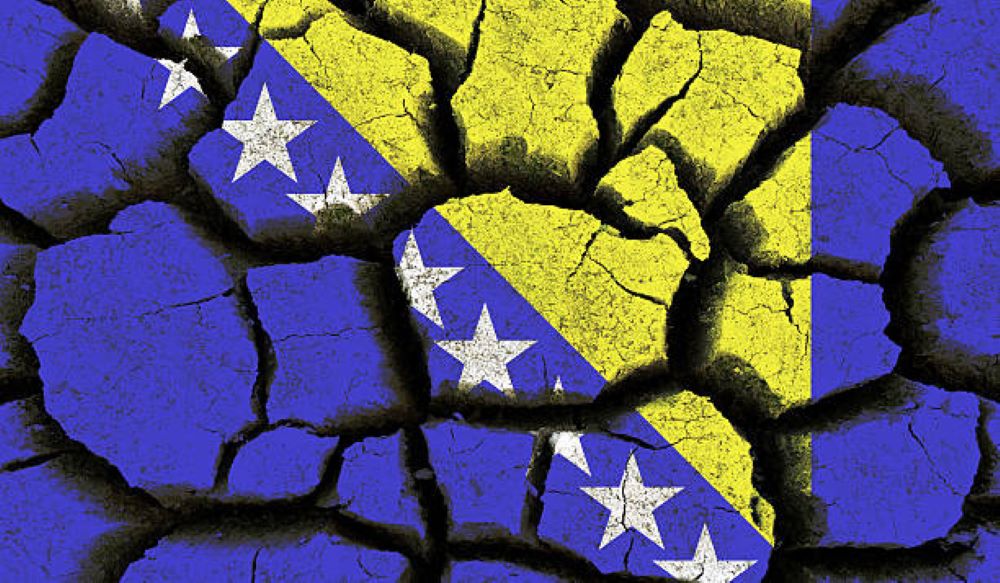The political articulation of ethno-nationalist rule is ethnopolitics, which comes with a wide array of its own “ratios”, “quotas”, “reciprocities”, making this country a “partially free partial country of partial democracy”.

Asim Mujkic
Learning that, according to the parameters of democratic states, BiH is qualified as a “partially free country” even today, after more than 30 years of the so-called democratic transition, provokes a malicious reaction, forcing me to say – that’s not true.
On the contrary, BiH has reached the stage of textbook democracy, definition being – the rule of the people, in the full capacity of the word “people”, meaning ethnic people.
As we follow the Sisyphean efforts of a coalition with a slightly milder “popular charge” and a few more “civic elements” to establish, based on the election results of October 2022, the vertical of its legitimate government, we cannot escape the conclusion that the ethno-nationalist order has been almost completely normalized . The political articulation of ethno-nationalist rule is ethnopolitics, which comes with a wide array of its own “ratios”, “quotas”, “reciprocities”, making this country a “partially free, partial country of partial democracy”.
Why is this the case? Because the key subject of ethnopolitics in a country are the “people”, not the individual citizen with his or her collective affiliations. The people, as a “subject”, exercise this quality through representation, the bearers of which are political representatives who have gone through the electoral process exclusively within that group of “people”. And so, from the perspective of ethnopolitics, general elections are always “intra-national”, with factions of the political elites of ethnic people fighting for the leading position of the peoples’ “representative” in the upcoming mandate period.
The real elections, which are only symbolically called General elections, are conducted between political leaders within certain national blocs. After the election, elected people’s representatives in “state” (supra-national) institutions negotiate with other similarly elected representatives of their people about the positions and quotas they will occupy in the following period. The potential victory of a “multi-ethnic” option can only be legitimate if it is squeezed – by the force of the ethno-political apparatus of quotas – into one of the “people” niches; for example, parties of a liberal-left orientation, such as the SDP and Our Party (Naša stranka), will only be able to operate politically within the “Bosniak” part of the general people’s government. This would, from this perspective, rightfully anger the only “legitimate” political representative of the Bosniak people – the SDA.
Since the subject of ethnopolitics is the people, the content of policy can only be what the elite of political representatives set as “the people’s goal” or “interest”. This essentially means that existential, concrete, common problems (use of public and natural resources, or spaces, for example) of concrete individuals within the people, but also of “non-people” groups and individuals cannot be taken into consideration. National subjectivity must be kept coherent and clearly demarcated from the Other people.
This separation and demarcation are maintained by constant mobilization of national unity around key collective themes or traumas, and intimidation from and towards other people. The coherence of a people as a political subject is most easily achieved and maintained by territorial demarcation between peoples, by drawing territorial borders in a way as to create a demographic majority of a certain people in the form of an entity, a canton or at least a municipality. Territorial redistribution is the cornerstone of the “state reason” in the light of which ethnopolitics turns into national state-building politics.
Due to the constant populist mobilization of the people’s subjectivity, maintainance of the national revolution fervour initiated by the war actions of the nineties, this ethnopolitics rule undoubtedly leads to authoritarianism, and by no means to the democratization of society or Europeanization – if by that we mean the rule of law, human rights and freedoms of the individual citizen as a subject of his or her own self-determination, a state of social justice…
Every regime with more or less authoritarian elements in Europe today is close to the ethnopolitical principle. The non-democratic elements that are identified in the political life of those countries (Poland, Hungary, for example) are directly proportional to the ethnopolitical share in said political life. These are illiberal, or “partially free” democracies.
prof. Dr. Asim Mujkić, academician, professor at the Faculty of Political Sciences in Sarajevo



Leave A Comment